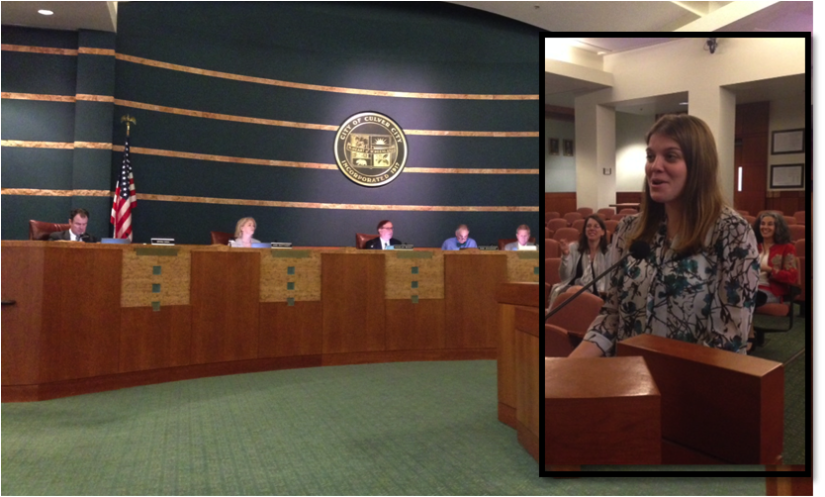The purpose of the Climate Ready program is to encourage local governments and non-governmental organizations to prepare for a changing climate by advancing planning and implementation of on-the-ground actions that reduce greenhouse gas (GHG) emissions and lessen the impacts of climate change on California’s coastal communities and natural resources.
The Climate Ready program was initiated in January 2013, which was around the same time that my fellowship began. Therefore, as the climate change fellow at the Conservancy, I was able to grow with this program and was given the unique experience of participating in the building and branding of the Climate Ready program while expanding on my climate change knowledge and collaborating with leaders in the climate change field.

My fellowship has revolved around assisting in the management of the Climate Ready grants by organizing applications, leading the review process, presenting projects to our board for approval, and working with regional project managers to identify the highest-priority coastal vulnerability assessments, adaption plans, and projects in each of the five regions of California.
We received 76 proposals requesting over $13.3 million for climate adaptation or greenhouse gas reduction projects in this grant cycle. Of the 76 proposals, we were able to fund 20 Climate Ready projects totaling a little over $3 million, which will fund projects from San Diego to Humboldt County. The level of interest in this grant demonstrated to me the importance of climate change work and the need and importance of the Conservancy in providing funding for climate change projects.
Working at the Coastal Conservancy has provided me with many valuable experiences and opportunities, including the opportunity to pursue my professional interests of addressing the impacts of climate change on coastal resources. I have also been able to make strong connections with staff at many state agencies and NGOs, like the Ocean Protection Council, the Coastal Commission, the San Francisco Bay Area Conservation and Development Commission, and the Bay Area Ecosystems Climate Consortium.
As my fellowship comes to an end, I am pleased to announce I have been offered a position at Oregon State University as a marine science integration researcher, which involves working with the Oregon Department of Wildlife and the Partnership for Interdisciplinary Studies of Coastal Oceans on the monitoring of marine reserves established off the coast of Oregon. I truly believe that the experiences I have gained during my fellowship provided me the skills needed to obtain this position. While navigating the job market, I found that I was an extremely competitive candidate due to the experiences and skills I gained as a Sea Grant fellow at the California State Coastal Conservancy, and for that I am exceedingly grateful to the Sea Grant program.
Written by Jessica Watson